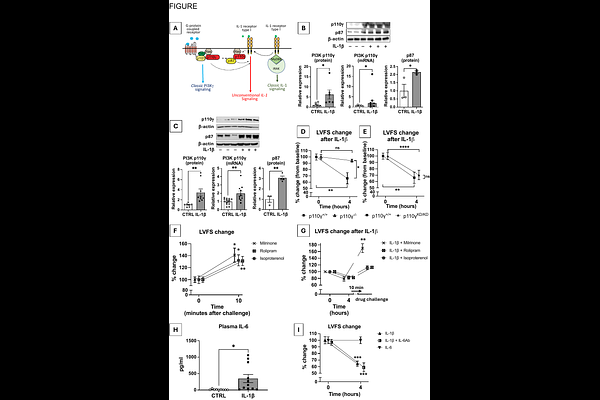UNCONVENTIONAL INTERLEUKIN-1 SIGNALING IN CARDIAC DYSFUNCTION

UNCONVENTIONAL INTERLEUKIN-1 SIGNALING IN CARDIAC DYSFUNCTION
Toldo, S.; Narayan, P.; Mezzaroma, E.; Ghigo, A.; Damilano, F.; Marchetti, C.; Mauro, A. G.; Hirsch, E.; Van Tassell, B.; Abbate, A.
AbstractInterleukin-1beta (IL-1beta) is an apical pro-inflammatory cytokine that has also been shown to negatively modulate cardiac contractility. Whether IL-1beta effects on systemic inflammation and cardiac function are intertwined and associated with each other, or whether they are independent of each other, is unknown. An unconventional signaling of the IL-1 receptor type I through the phosphoinositide-3 kinase gamma (PI3Kgamma), at least in part independent of the proinflammatory signaling, has been characterized in inflammation and cancer. We hypothesized that IL-1beta would increase the expression of PI3K p110gamma in cardiomyocytes, which in turn results in selective induction of p87 co-signaling and cardiac dysfunction through a scaffolding function on phosphodiesterase 3B (PDE3B). Using genetically modified mice, we show that IL-1-induced cardiac dysfunction is mediated by a kinase-independent PI3K p110gamma mechanism. This may have compelling implications for the understanding and treatment of HFrEF.